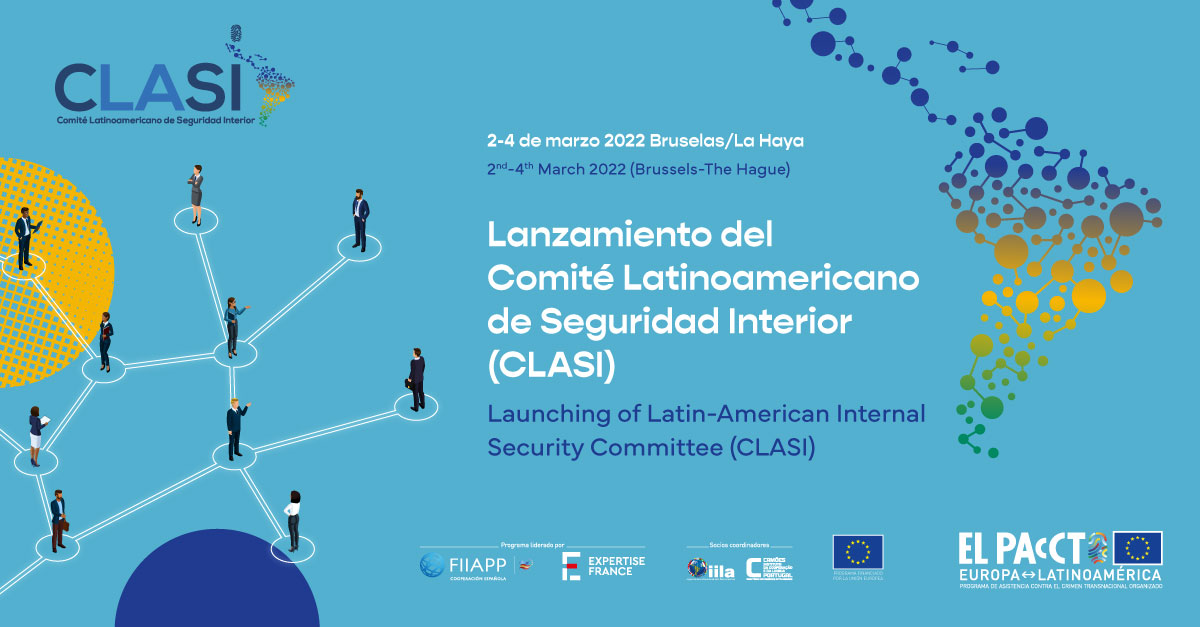The Latin American Internal Security Committee (CLASI) has been driven by the European Union’s cooperation programme, EL PAcCTO. It is inspired by the European model of the COSI (Permanent Committee for Operational Cooperation in the field of Internal Security). The new Committee will make it possible to coordinate common public policies in Latin America (LA) to deal with organised crime.
On March 2, the participating countries of LA will sign the political declaration that marks the beginning of the creation of CLASI. Senior representatives from Argentina, Bolivia, Costa Rica, Ecuador, El Salvador, Panama, Peru and the Dominican Republic are scheduled to attend.
Koen Doens, General Director of International Associations of the European Commission, will participate in the signing ceremony.
What is CLASI?
CLASI is an agency for political and technical dialogue between lead partners for security policies in Latin American countries, and is very specifically and operationally orientated. The objective is that lead partners meet to jointly define strategies and coordinate public policies against organised transnational crime.
EL PAcCTO will accompany the CLASI creation process until this entity functions autonomously. European and Latin American experts have contributed to the elaboration of an internal regulation approved by the countries of Latin America. Therefore, EL PAcCTO will support CLASI in the definition of work plans, and good practices will be shared for the definition of priorities, strategies and policies.
So far, 12 Latin American countries have expressed their interest in being part of CLASI: Argentina, Bolivia, Brazil, Chile, Costa Rica, Ecuador, El Salvador, Mexico, Paraguay, Panama, Peru and the Dominican Republic.
